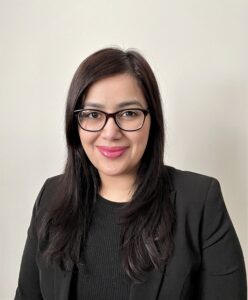
Dr. Mehwish Anwer has always been intrigued by the complexity of the human brain, from its ability to carry out highly intricate functions to the abnormalities caused by disease. As a postdoctoral fellow in Dr. Cheryl Wellington’s lab, she is investigating the patterns of neuronal activity after traumatic brain injury (TBI) and its link to dementia.
In the Wellington lab, she uses an innovative brain injury model called CHIMERA that was developed at UBC in collaboration with Dr. Peter Cripton’s team. Dr. Anwer is also investigating the link between TBI, Alzheimer disease and the development of PTSD-like fear memory deficits. She is a strong advocate of using the latest brain imaging techniques, such as tissue clearing and spatial transcriptomics (in collaboration with Dr. Mark Cembrowski’s team), to understand the nervous system in 3D with a whole-brain approach.
“I am always amused by the fact that we use our brains to study the brain!” she says, and is happiest when she can spend time on a microscope looking at neurons.
What attracted her to UBC, and particularly the Djavad Mowafaghian Centre for Brain Health, was the nurturing environment for early-stage researchers.
“I am very inspired by my mentor Dr. Wellington for her extraordinary commitment to professional development and wellbeing of her trainees, as well as her pioneering work in the fields of TBI and Alzheimer disease pathology,” says Dr. Anwer. “Building on this amazing support, I aspire to establish myself as an independent researcher in neurodegenerative diseases as well as contribute to the training of students after my postdoctoral studies.”
Before moving to Canada in 2021, she completed her doctoral studies at the University of Eastern Finland, studying the development of epilepsy after traumatic brain injury, and worked at the United Arab Emirates University prior to that. Because her experience spans multiple continents and cultures, she is a strong advocate of equity, diversity and inclusion, and believes mutual respect and kindness can go a long way.
This profile was published as part of the DMCBH 2021-2022 Year in Review


